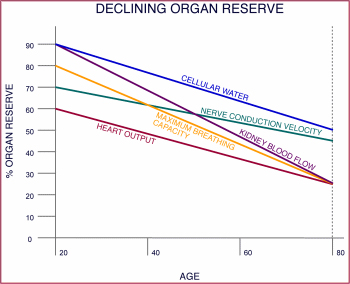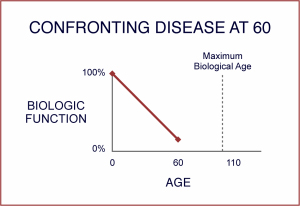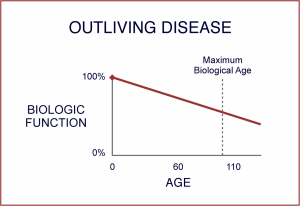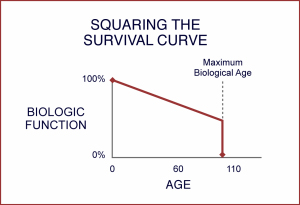Taking the High Road
Rather than simply masking your symptoms, it’s important that your treatment get to the roots of your problem, to understand what’s causing it, and to correct those causal elements, so that they don’t continue to develop, coming back to haunt you later in a larger form. At the Yanuck Center, our in treating you is always to get to the root of the problem, using your symptoms as signposts that provide key information, leading back to the root causes of your problems.
In the early part of the twentieth century, most people died of infectious diseases. These were diseases whose agents could be transmitted in an instant. One moment you were free of disease, the next moment you had polio. The infectious diseases were conquered by improved sanitation and breakthroughs in medications. Having cleared this obstacle to a long and healthy life, we have encountered cancer, heart disease, and diabetes. These have taken the place of tuberculosis, pneumonia, polio and typhoid as the killers of our time.
The onset of diseases like cancer, heart disease, diabetes and others is the culmination of years of small declines in organ vitality. Your ability to resist disease is equal to the reserve capacity of your body’s organs and tissues. The gradual decline in health occurs in all of us, as the accumulated stresses and loss of function take their toll on our systems. Dr. James Fries of Stanford University refers to this decline as the universal degenerative process. According to Fries and others, it is this process that eventually develops into the “degenerative” diseases like cancer, heart disease, and diabetes.
The Information Value of Symptoms
Common problems like fatigue, headache, allergy, intestinal upset, chronic pain or injury, loss of strength, frequent colds, or backache – which we often ignore or self-medicate – are subtle symptoms of the universal degenerative process. These symptoms may be signposts along the road to disease. Many physicians believe that by treating the patient in the early stages of decline, the pace of decline can be slowed, and the onset of disease can be postponed.

In order to slow your decline, something active must be done. Just as a car must be tuned up periodically, and have its oil changed regularly for it to live out its longest and fullest life, you must tend to your health, so that you may be kept in good working order.
When your car’s engine makes an odd noise, you take it to the mechanic. Even though the car still gets you from place to place, you know the noise may mean the engine needs to be repaired. Your mechanic would never say “Just turn the radio louder, so you won’t hear the noise.” But this is what happens when you take a medication to mask over your symptoms. Relief from symptoms can be good, but it doesn’t take care of the underlying problem.
Outlasting Rather Than Conquering Disease
There is a maximum biological limit of aging, as most experts agree. For instance, all mammals except humans live 6 times as long as it takes their skeletons to mature. Human skeletons mature at about 20 years old. If we were as healthy as other mammals, perhaps we would live 120 years. Other methods of estimating maximum age also give results between 110 and 120.
By shifting strategy towards ongoing rather than last minute intervention, we are seeking to postpone the declines that lead to disease.

If we can delay these declines long enough, we can postpone disease to a point beyond the maximum biological limit of aging. The challenge is to use your efforts and energy wisely. Rather than trying to pay attention to everything that might help, choose the most important health issues to focus on.
Persius (a Roman Writer)
It is far better to cure at the beginning than at the end.
When to Seek Care
The most effective process is one in which you get used to noticing the signs of your own decline, and understand when it is time for care. As a rule of thumb, if you are feeling fine, you should be treated when the seasons change. This is a time of increased stress to your system, as it adapts to changes in the weather, patterns of light and dark, and other stresses. You should also seek care if you are injured, if you feel run down, if you have chronic pain, or if you have a chronic ailment. Working on these problems can be enormously important to your long term health.

The Result: Squaring the Curve
Johnny Carson
The AMA announced recently that the average life span has increased
to 75 and 1/2 years…Unfortunately, you get the extra 1/2 year at the end!
Delaying the universal degenerative process means an individual need not expect a life of slow declines and failing capacities. Instead of the gradual downward slope to which we are accustomed, robust health can be maintained into old age. Maintaining optimum health and biologic function right up to the maximum limit of aging is what doctors call “squaring the curve.”

Periodic care to optimize your body’s functions is the key to squaring the survival curve. Maintaining organ reserves, balancing the body chemistry, keeping your nervous system organized, and correcting minor problems early can be essential to slow the pace of decline. And perhaps surprisingly, maintaining a routine of care that postpones your body’s declines is very cost effective, according to the National Science Foundation…”postponing universal decline would lower, strikingly, per capita costs for older persons, starting with the 45 to 49 cohort. Chronic costs would be delayed and their duration reduced. Individuals would tend to stay healthy longer and decline more abruptly.” That’s Squaring the Curve.


